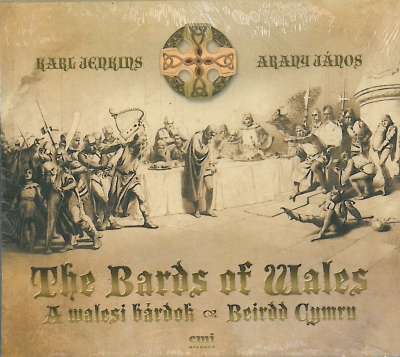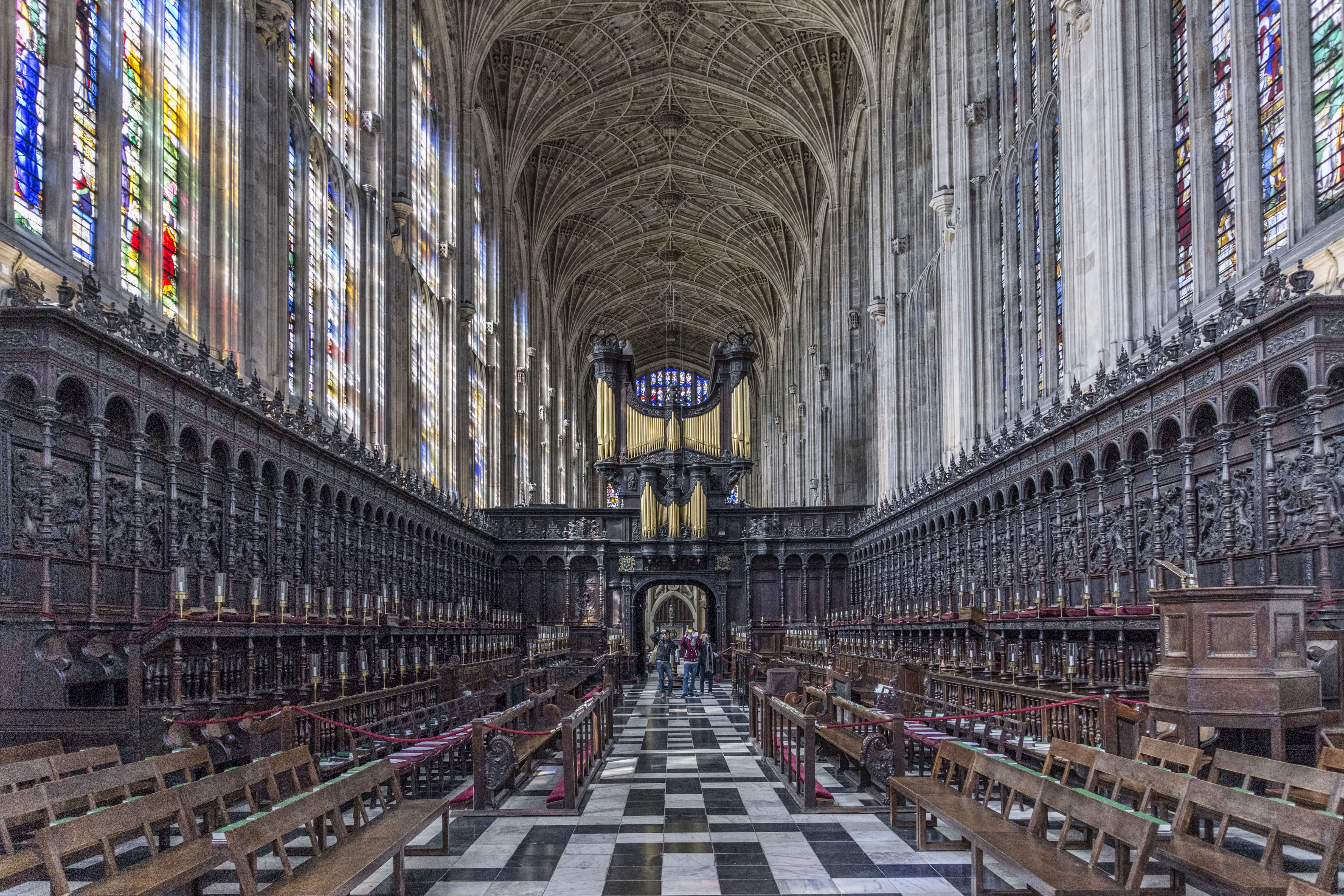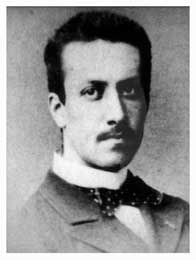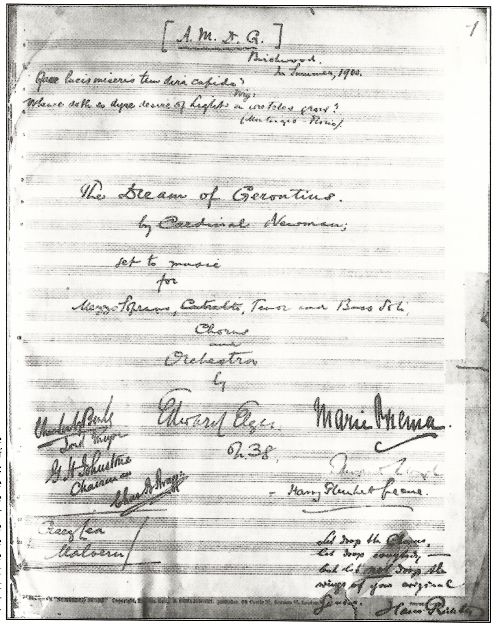|
The Really Big Chorus
The Really Big Chorus (TRBC) is Britain's largest choral society, made up of singers from hundreds of different choirs all over the UK as well as thousands of individuals. It was founded by Don Monro, an Electrical Engineering lecturer (and clarinettist) at Imperial College, just opposite the Royal Albert Hall. The Really Big Chorus gathers three times a year at the Royal Albert Hall. The flagship event is ''Messiah from Scratch'' that attracts over 3,000 singers, and there are also weekends in European cities and leisurely cruises. Any singer can take part and there are no auditions, but singers are expected to learn the music in advance. The first concert was ''Messiah from Scratch'', performed at the Royal Albert Hall in 1974. The conductor was Gavin Park. In 1979, the fifth anniversary of ''Messiah from Scratch'', Park's research took him on sabbatical to the USA. David Willcocks was approached and agreed to conduct. Park gracefully deferred and played cello in the orchestra ... [...More Info...] [...Related Items...] OR: [Wikipedia] [Google] [Baidu] |
Royal Albert Hall
The Royal Albert Hall is a concert hall on the northern edge of South Kensington, London. One of the UK's most treasured and distinctive buildings, it is held in trust for the nation and managed by a registered charity which receives no government funding. It can seat 5,272. Since the hall's opening by Queen Victoria in 1871, the world's leading artists from many performance genres have appeared on its stage. It is the venue for the BBC Proms concerts, which have been held there every summer since 1941. It is host to more than 390 shows in the main auditorium annually, including classical, rock and pop concerts, ballet, opera, film screenings with live orchestral accompaniment, sports, awards ceremonies, school and community events, and charity performances and banquets. A further 400 events are held each year in the non-auditorium spaces. Over its 151 year history the hall has hosted people from various fields, including meetings by Suffragettes, speeches from Winston Church ... [...More Info...] [...Related Items...] OR: [Wikipedia] [Google] [Baidu] |
Vivaldi
Antonio Lucio Vivaldi (4 March 1678 – 28 July 1741) was an Italian composer, virtuoso violinist and impresario of Baroque music. Regarded as one of the greatest Baroque composers, Vivaldi's influence during his lifetime was widespread across Europe, giving origin to many imitators and admirers. He pioneered many developments in orchestration, violin technique and programatic music. He consolidated the emerging concerto form into a widely accepted and followed idiom, which was paramount in the development of Johann Sebastian Bach's instrumental music. Vivaldi composed many instrumental concertos, for the violin and a variety of other musical instruments, as well as sacred choral works and more than fifty operas. His best-known work is a series of violin concertos known as '' the Four Seasons''. Many of his compositions were written for the all-female music ensemble of the '' Ospedale della Pietà'', a home for abandoned children. Vivaldi had worked as a Catholic ... [...More Info...] [...Related Items...] OR: [Wikipedia] [Google] [Baidu] |
2012 Summer Olympics
The 2012 Summer Olympics (officially the Games of the XXX Olympiad and also known as London 2012) was an international multi-sport event held from 27 July to 12 August 2012 in London, England, United Kingdom. The first event, the group stage in women's football, began on 25 July at the Millennium Stadium in Cardiff, followed by the opening ceremony on 27 July. 10,768 athletes from 204 National Olympic Committees (NOCs) participated in the 2012 Olympics. Following a bid headed by former Olympic champion Sebastian Coe and the then-London mayor Ken Livingstone, London was selected as the host city at the 117th IOC Session in Singapore on 6 July 2005, defeating bids from Moscow, New York City, Madrid, and Paris. London became the first city to host the modern Olympics three times, having previously hosted the Summer Games in 1908 and 1948. Construction for the Games involved considerable redevelopment, with an emphasis on sustainability. The mai ... [...More Info...] [...Related Items...] OR: [Wikipedia] [Google] [Baidu] |
Avery Fisher Hall
David Geffen Hall is a concert hall in New York City's Lincoln Center for the Performing Arts complex on Manhattan's Upper West Side. The 2,200-seat auditorium opened in 1962, and is the home of the New York Philharmonic. The facility, designed by Max Abramovitz, was originally named Philharmonic Hall and was renamed Avery Fisher Hall in honor of philanthropist Avery Fisher, who donated $10.5 million ($ million today) to the orchestra in 1973. In November 2014, Lincoln Center officials announced Fisher's name would be removed from the Hall so that naming rights could be sold to the highest bidder as part of a $500 million fund-raising campaign to refurbish the Hall. In 2015, the Hall acquired its present name after David Geffen donated $100 million to the Lincoln Center. Renovations 20th-century renovations The Hall underwent extensive renovations in 1976, to address acoustical problems that had been present since its opening. Another, smaller renovation attempted to ... [...More Info...] [...Related Items...] OR: [Wikipedia] [Google] [Baidu] |
Karl Jenkins
Sir Karl William Pamp Jenkins (born 17 February 1944) is a Welsh multi-instrumentalist and composer. His best known works include the song "Adiemus" and the ''Adiemus'' album series; ''Palladio''; ''The Armed Man''; and his ''Requiem''. Jenkins was educated in music at Cardiff University and the Royal Academy of Music: of the latter, he is a fellow and an Associate. He joined the jazz-rock band Soft Machine in 1972 and became the group's lead songwriter in 1974. Jenkins continued to work with Soft Machine up to 1984, but has not been involved with any incarnation of the group since. Jenkins has composed music for advertisement campaigns and has won the industry prize twice. Early life and education Karl Jenkins was born and raised in Penclawdd, Gower, Wales. His mother was Swedish, and his father was Welsh. Jenkins received his initial musical instruction from his father, who was the local schoolteacher, chapel organist and choirmaster. He attended Gowerton Grammar School ... [...More Info...] [...Related Items...] OR: [Wikipedia] [Google] [Baidu] |
Stephen Cleobury
Sir Stephen John Cleobury ( ; 31 December 1948 – 22 November 2019)Sir Stephen Cleobury: Former King's College choir conductor dies aged 70 23 November 2019 was an English and . He worked with the |
Brian Kay
Brian Christopher Kay (born 12 May 1944) is an English radio presenter, conductor and singer. He is well-known as the bass in the King's Singers during the group's formative years from 1968 to 1982, and as such is to be heard on many of their 1970s recordings. He was also the voice of Papageno in the film '' Amadeus'' and the lowest frog in the Paul McCartney song " We All Stand Together" ("The Frog's Chorus"). He is noted as a choral conductor, being former conductor (and now president) of the Leith Hill Musical Festival and former director of the Huddersfield Choral Society. He is principal conductor of the Really Big Chorus. On radio, he has been a presenter of '' Friday Night is Music Night'' on BBC Radio 2 and until 2006 presented ''3 for All'' and ''Brian Kay's Light Programme'', a weekly programme about light music on BBC Radio 3. In 1996 he won the Sony Radio Award as Music Presenter of the Year. He is a patron of Bampton Classical Opera and president of The English ... [...More Info...] [...Related Items...] OR: [Wikipedia] [Google] [Baidu] |
Widor
Charles-Marie-Jean-Albert Widor (21 February 1844 – 12 March 1937) was a French organist, composer and teacher of the mid-Romantic era, most notable for his ten organ symphonies. His Toccata from the fifth organ symphony has become one of the best known and most often performed works for organ. As of 2022, he is the longest-serving organist of Saint-Sulpice in Paris, a role he held for 63 years (January 1870 – 31 December 1933). He also was organ professor at the Paris Conservatory from 1890 to 1896 (following César Franck) and then he became professor of composition at the same institution, following Théodore Dubois. Widor was a prolific composer, writing music for organ, piano, voice and ensembles. Apart from his ten organ symphonies, he also wrote three symphonies for orchestra and organ, several songs for piano and voice, four operas and a ballet. He was one of the first composers to use the term "symphony" for some of his organ compositions, helped in this by the ... [...More Info...] [...Related Items...] OR: [Wikipedia] [Google] [Baidu] |
Gloria (Vivaldi)
Antonio Vivaldi wrote at least three Gloria compositions, settings of the hymn Gloria in excelsis Deo, with words probably dating back to the 4th century, and an integral part of the mass ordinary. Two of them have survived: RV 588 and RV 589. A third, RV 590, is mentioned only in the Kreuzherren catalogue and presumed lost. The RV 589 Gloria is a familiar and popular piece among sacred works by Vivaldi. It was probably written at about the same time as the RV 588, possibly in 1715. ''Introduction '' As with other choral pieces the composer, Vivaldi, wrote many ''introduzioni'' (introductory motets) that were to be performed before the Gloria itself. Four ''introduzioni'' exist for these Glorias: ''Cur Sagittas'' (RV 637), ''Jubilate, o amoeni cori'' (RV 639) (the last movement of which is compositionally tied with the first movement of RV 588), ''Longe Mala, Umbrae, Terrores'' (RV 640), and ''Ostro Picta'' (RV 642). Settings RV 588 The lesser known of the two surviving ... [...More Info...] [...Related Items...] OR: [Wikipedia] [Google] [Baidu] |
Dream Of Gerontius
''The Dream of Gerontius'', Opus number, Op. 38, is a work for voices and orchestra in two parts composed by Edward Elgar in 1900, to text from The Dream of Gerontius (poem), the poem by John Henry Newman. It relates the journey of a pious man's soul from his deathbed to his judgment before God and settling into Purgatory. Elgar disapproved of the use of the term "oratorio" for the work (and the term occurs nowhere in the score), though his wishes are not always followed. The piece is widely regarded as Elgar's finest choral work, and some consider it his masterpiece. The work was composed for the Birmingham Triennial Music Festival, Birmingham Music Festival of 1900; the first performance took place on 3 October 1900, in Birmingham Town Hall. It was badly performed at the premiere, but later performances in Germany revealed its stature. In the first decade after its premiere, the Roman Catholic theology in Newman's poem caused difficulties in getting the work performed in Angli ... [...More Info...] [...Related Items...] OR: [Wikipedia] [Google] [Baidu] |
David Willcocks
Sir David Valentine Willcocks, (30 December 1919 – 17 September 2015) was a British choral conductor, organist, composer and music administrator. He was particularly well known for his association with the Choir of King's College, Cambridge, which he directed from 1957 to 1974, making frequent broadcasts and recordings. Several of the descants and carol arrangements he wrote for the annual service of Nine Lessons and Carols were published in the series of books ''Carols for Choirs'' which he edited along with Reginald Jacques and John Rutter. He was also director of the Royal College of Music in London. During the Second World War (1939–1945) he served as an officer in the British Army, and was decorated with the Military Cross for his actions on Hill 112 during the Battle of Normandy in July 1944. His elder son, Jonathan Willcocks, is also a composer. Biography Born in Newquay in Cornwall, Willcocks began his musical training as a chorister at Westminster Abbey from ... [...More Info...] [...Related Items...] OR: [Wikipedia] [Google] [Baidu] |
Elgar
Sir Edward William Elgar, 1st Baronet, (; 2 June 1857 – 23 February 1934) was an English composer, many of whose works have entered the British and international classical concert repertoire. Among his best-known compositions are orchestral works including the '' Enigma Variations'', the '' Pomp and Circumstance Marches'', concertos for violin and cello, and two symphonies. He also composed choral works, including '' The Dream of Gerontius'', chamber music and songs. He was appointed Master of the King's Musick in 1924. Although Elgar is often regarded as a typically English composer, most of his musical influences were not from England but from continental Europe. He felt himself to be an outsider, not only musically, but socially. In musical circles dominated by academics, he was a self-taught composer; in Protestant Britain, his Roman Catholicism was regarded with suspicion in some quarters; and in the class-conscious society of Victorian and Edwardian Britain, he was ... [...More Info...] [...Related Items...] OR: [Wikipedia] [Google] [Baidu] |








